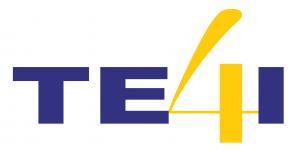During the TE4I project all participating countries were invited submit proposals to host visits that would address key themes of the TE4I project. The country submissions were then considered by the Project Advisory Group and project staff team and visits scheduled in accordance with pre-determined criteria including the relevance of the theme proposed, possibilities to explore practice of different approaches to initial teacher education and achieving a balance of geographic representation of countries.
Study visits to 5 countries were undertaken in 2010 and a further 9 visits in 2011. All of these visits made a valuable contribution to the project by providing opportunities for debate about key issues and, in particular competences for ‘inclusive’ teachers among country experts and policy makers.
Country study visits 2010
Five Country Study Visits were held between April and June 2010. All five of the meetings included the following activities:
- Presentations from the host country team on the chosen topic/aspect as well as examples of practice from their country;
- Short presentations from each of the project experts on this issue for the study visit from their own country perspective;
- Interactive discussions with project experts and different stakeholders from the country;
- Closed discussion sessions for project experts to consider the essential messages for the development of the Profile document.
In addition to the country project experts, over 100 participants were involved in the five visits.
From the links below you will find all of the information from the visits:
Country study visits 2011
Nine Country Study Visits were held between March and May 2011. The aim of these visits was to hold a series of ‘validation’ activities in countries. Within the project activities, validation was understood to refer to stakeholder agreement on the proposed framework of values and areas of competence as well as specific content of the Profile document.
The main goal of the 2011 country visits was to collect feedback from a range of different stakeholders in teacher education on the content and potential usefulness of the Profile of Inclusive teachers. During each of the visits the country host teams organised a range of activities involving different stakeholder group representatives. These activities included: visits to and observations in schools and classes; visits to teacher education institutions and observations of ITE classes and presentations about country policy and practice for ITE.
These discussion activities ranged from conversations with small groups, to large plenary debates with audiences of over 50 stakeholder group representatives. In addition to the country project experts, over 300 participants were involved in the nine visits. These included:
- Learners (both with and without special educational needs), their parents and family members;
- Local community representatives;
- Class teachers, school leaders, specialist teachers and support staff;
- Multi disciplinary team members (including school psychologists, social workers and health care professionals);
- School inspectors, local area administrators and policy makers;
- Newly qualified teachers;
- Student teachers – studying both ITE and in-service education programmes;
- Teacher educators working in inclusive, special needs and subject based programmes;
- Teacher education institution senior managers (rectors, deans, heads of departments and faculties);
- National level policy makers for inclusive education and teacher education.
The visits were grouped into two phases of information collection:
- Information collection for validation: using the agreed template, feedback on the profile were collected during the visits to Cyprus, Malta, Norway, Latvia and Finland and then analysed by the project staff team in order to identify emerging themes and ideas across the visits.
- Information verification: the key trends and messages emerging from the first visits were presented to participants in the visits to Denmark, Spain, UK (England) and Austria. Participants were asked to specifically comment on the trends identified in the first phase of visits in order to see if the findings were verified or contested.
Find all of the information from the nine Country Study Visits in 2011 at the links below:
